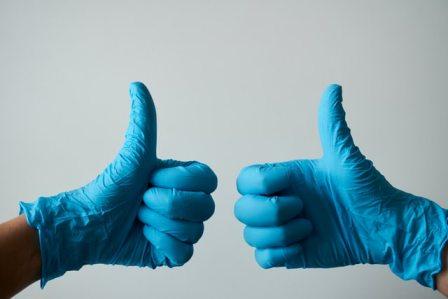
Intimidated by medical exams? You’re not alone! Check-ups are intimidating, and that’s without the added stress of knowing the exam can affect the cost of a monthly life insurance premium. Even though a life insurance health exam may seem daunting, applicants can prepare ahead of time and follow several tips and tricks to make sure their exam gives the most accurate picture of their health possible!
What’s the Purpose?
The premise of life insurance health exams is simple: younger, healthier individuals will likely live for a long time, making them less of a liability for insurance companies. The physical exam allows insurance companies to gain insight into an applicant’s medical history, height and weight measurements, blood pressure, and health habits. People who smoke tobacco, are overweight, or have pre-existing health conditions may still be approved for life insurance, but they may pay higher premiums since their health isn’t in peak condition.
What to Expect
Life insurance health exams usually take between 15 and 45 minutes. They can take place in an applicant’s home, workplace, or a paramedical service’s exam center, and the cost is typically covered in full by the insurance provider. The exam consists of two parts: a verbal health interview and a physical health exam. During the interview, the examiner will ask questions about the applicant’s health history, health habits, and current medications. During the exam, an applicant’s height and weight measurements, as well as their blood pressure and pulse, are recorded. Blood and urine samples are taken to be processed in a lab. Older individuals applying for higher amounts of life insurance may take an electrocardiogram, as well (ECG or EKG).
What to Do and What to Avoid
***Due to COVID-19, some companies have changed their exam procedures. Check with your life insurance company to see how they are dealing with the coronavirus pandemic.
Watch what you eat and drink.
In the weeks leading up to a life insurance health exam, it is important for applicants to watch what they eat and drink since different substances have different effects on the body. Weeks prior to the exam, applicants should start drinking more water and eating less processed foods. Applicants should also avoid alcohol and nicotine since both can raise blood pressure.
Make sure to rest!
Leading up to an exam, make sure to get more than six hours of sleep per night. Inadequate sleep can cause increased blood pressure, which will show up in the physical exam. Applicants should also avoid working out the day of their exam since it could both raise their blood pressure and increase the proteins in their urine, a symptom often seen in patients with kidney disease.
Avoid certain medications.
The day before a life insurance medical exam, applicants should avoid certain over-the-counter medications, including antihistamines and nasal decongestants. Medications like these can increase blood pressure.
Get all paper materials together ahead of time.
Before an applicant meets with a medical examiner, they should prepare all necessary materials like a photo ID, their primary care physician’s contact information, and a list of any current medications. Not only will this ensure that they are prepared, but it may also help lower stress levels the day of the exam, which can result in lower blood pressure and a lower heart rate.
Plan ahead!
The best way to approach a life insurance health exam is by planning ahead. By knowing what to expect and being aware of the steps to take to ensure that the exam runs as smoothly and accurately as possible, applicants can put their best foot forward and show insurance companies just what they’re made of!
Health Insurance Questions?
We hope this information on staying healthy for life insurance health exams is helpful.
Empower Brokerage wants to help you understand the insurance coverage you need and how to save money getting it. Stay on top of your health and give us a call at (844) 410-1320
Get affordable health insurance quotes by clicking here.
See our other websites:

